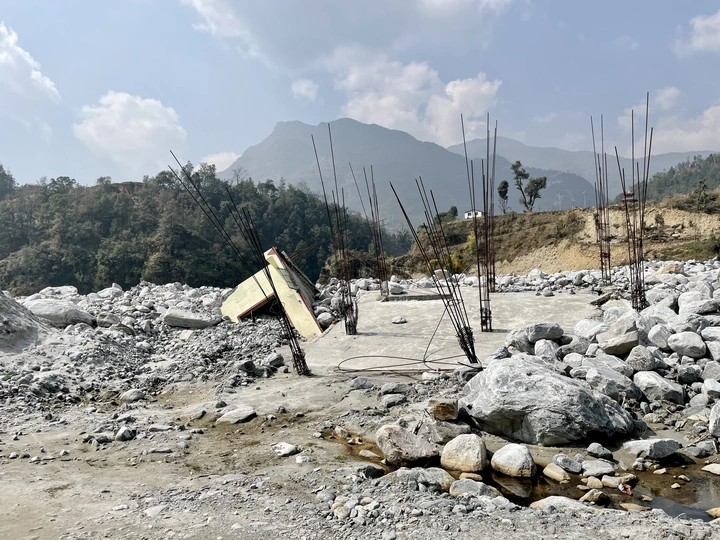From Rubble to Resilience

Félix Dillmann is a Swiss architect and designer based in Basel. He earned his Master’s degree from ETH Zurich, where his thesis — nominated for the THEO Promotion Award — explored how urban infrastructure can produce democracy through the means of play and creative interpretation. With professional experience spanning across African, Asian, and Eastern European contexts, his practice centers on participatory, socially inclusive, and environmentally responsible architecture — developing spatial strategies that intersect with alternative economic systems and circular design principles. Currently, he leads cross-border reconstruction initiatives with the NGO RE-WIN, designing scalable systems that bridge humanitarian response with long-term development, particularly in war-affected regions like Ukraine.
Félix has collaborated with organizations such as Supertecture, MIT D-Lab, and ETH4Development, facilitating field-based projects and design workshops that position spatial interventions as tools for civic engagement and social cohesion. His approach draws on design thinking, systems literacy, and intercultural collaboration. Through hands-on practice, academic engagement, and published research, he aims to embed circularity, care, and agency into the built environment. As co-founder of nomol.ag, a company advancing circular building practices and value-driven business models, Félix explores how architecture can operate as both structural response and instrument for social repair.
In the aftermath of destruction, architecture can be more than a response to structural loss. It can act as a catalyst for social cohesion, local agency and circular economies. Rebuilding is not merely a technical task; it is an opportunity to reshape how we inhabit, repair and care for our environment’s and one another.
This proposal explores how participatory design and circular construction can be leveraged as psychosocial and socio-spatial practices in crisis-affected contexts, particularly in Ukraine. It builds on practical experience from Supertecture in Nepal and RE-WIN’s in Ukraine, where rebuilding becomes a shared process of recovery.
War destroys not only structures but also social fabrics. This project proposes spatial interventions that go beyond shelter — where rebuilding through collective repair, salvaged materials, and co-creation empowers communities to actively shape their own recovery. Construction sites, repair workshops, reuse hubs, or temporary commons evolve into Third Spaces: civic platforms between past trauma and future possibility — spaces of encounter, mutual learning and embodied care.
These spaces enable a form of post-crisis urbanism rooted not in efficiency, but in participation, material cycles, and emotional presence. Drawing from Lefebvre’s notion of space as lived practice and Habraken’s call for user participation, the project views architecture as a site of agency — where circular materials, collective labor and psychosocial support converge. The process is slow, hands-on and inclusive. Interventions are low-tech, resourceful and based on locally or urban-sourced materials. Architecture becomes social infrastructure — a medium for rebuilding trust, supporting resilience and enabling civic repair.
Beyond this project, the proposal is a search for new forms of agency in architectural production — aiming to challenge the frameworks, regulations, and economic drivers that currently define how architecture is produced.